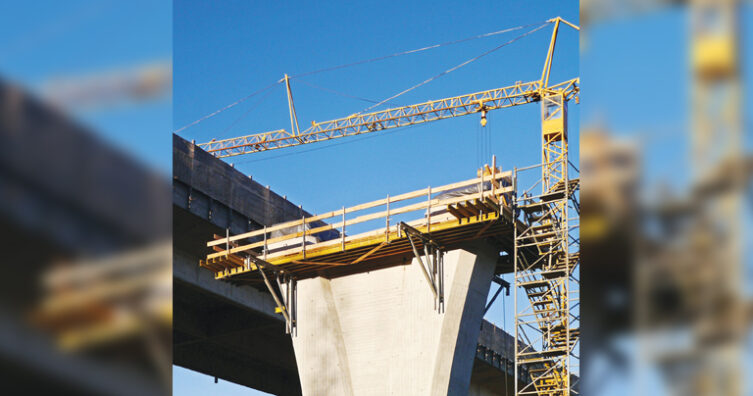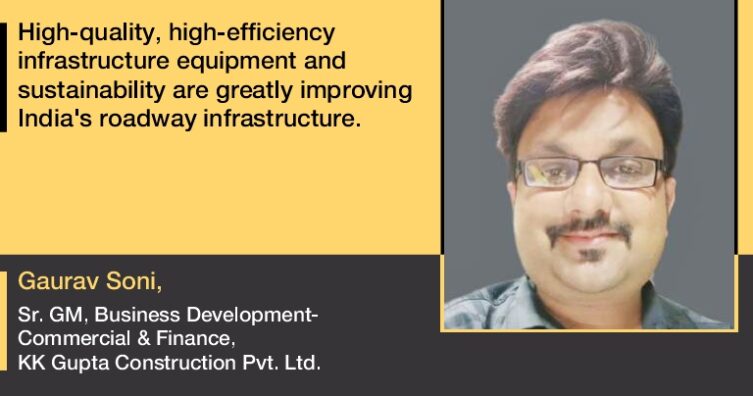Discussing the developmental trends in the highway infrastructure, Gaurav Soni of K K Gupta Construction Pvt. Ltd. shares his optimism on India’s growth story with highway infrastructure.
How do initiatives like Bharat Mala Pari Yojana and the PPP model enhance road infrastructure, contribute to economic growth, and improve logistics?
India must embrace technology, research, innovation, and successful practices globally and domestically. National Highways are crucial for economic and social progress, facilitating the movement of goods and connecting people. In May, national highway construction increased by 12 percent compared to the previous year. The road transport ministry has planned to spend 91 percent of its allocated budget by December, contributing significantly to India’s GDP. Economic growth enables states to provide essential public goods and services. Improved road connectivity can positively impact logistics and supply chains by reducing costs and enabling faster movement of goods. To achieve this, the government is implementing various initiatives, such as Bharat Mala Pari Yojana, the PPP model, and green projects. Ultimately, better roads and infrastructure stimulate economic growth and enhance the transportation of goods and services.
How do you assess the adoption of e-tendering and online platforms in the procurement process?
Transparency in the procurement process and the use of technology help reduce corruption, encourage competition, and attract qualified contractors, ultimately leading to efficient and high-quality infrastructure development. The government has increasingly adopted e-tendering and online platforms to procure road construction projects. These digital platforms facilitate the entire procurement process, including the publication of tender notices, submission of bids, bid opening, and evaluation. E-tendering promotes transparency, reduces paperwork, and gives contractors a wider range of participation. The government invites interested contractors to submit bids that include technical proposals, project timelines, and financial proposals. The bidding process ensures that projects are awarded to the most capable and qualified contractors. Only pre-qualified contractors can participate in bidding, ensuring that only qualified firms are considered for projects.

What are the key challenges in ensuring road construction project quality?
The highways sector encounters challenges in material availability, machinery, and timely project completion. Infrastructure projects require aggregates, while management, quality control, and skilled labour pose significant hurdles. To overcome these challenges, India aims to improve road construction quality through technology adoption, quality assurance programs, skill development initiatives, better project management, and enhanced cooperation. These efforts aim to address material and machinery availability, ensure consistent quality control, and foster skilled labour in the construction industry.
What factors must be considered in the regulatory framework to ensure the successful and sustainable impact of allowing private companies to invest in and operate highways?
The impact of allowing private companies to invest in and operate highways in India will depend on the provisions and regulatory framework established by NHAI and the government. Potential effects include faster project implementation, investment development, and technological progress, fostering private sector growth. Investment in road infrastructure can create jobs and stimulate economic growth in the areas where highways are built. Balancing the interests of the private sector with public concerns about access, quality, and affordability is crucial. Maintaining high service standards, safety, and user experience is essential to safeguard the interests of road users. It is important to consider the specific details and effects of the policy within NHAI’s regulatory framework.
Cookie Consent
We use cookies to personalize your experience. By continuing to visit this website you agree to our Terms & Conditions, Privacy Policy and Cookie Policy.

















